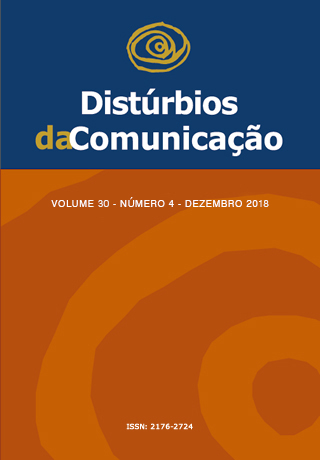Can singing with rasp be a healthy practice?
DOI:
https://doi.org/10.23925/2176-2724.2018v30i4p802-808Keywords:
Singing, Voice quality, Voice training.Abstract
Singing with a distorted or raspy voice as it is most popularly known is usual in many forms of singing besides rock. The so-called intentional voice distortions have been present in music for many years and in the most diverse human cultures. Even so, these types of production still run into prejudices in the sense of considering, without scientific evidence, that they are harmful to vocal health. The goal of this communication was to reflect on the intentional voice distortions in singing in a dialogue between Music and the fields that study the singing voice as Speech Language Pathology and Laryngology. In order to expand the knowledge on these types of vocalizations and to relate the researches that investigated the subject.Downloads
Download data is not yet available.
Metrics
Metrics Loading ...
Downloads
Published
2018-12-12
How to Cite
Fiuza, M. B., & Silva, M. A. de A. e. (2018). Can singing with rasp be a healthy practice?. Distúrbios Da Comunicação, 30(4), 802–808. https://doi.org/10.23925/2176-2724.2018v30i4p802-808
Issue
Section
Communication
License
Copyright (c) 2018 Mauro Barro Fiuza, Marta Assumpção de Andrada e Silva

This work is licensed under a Creative Commons Attribution 4.0 International License.






